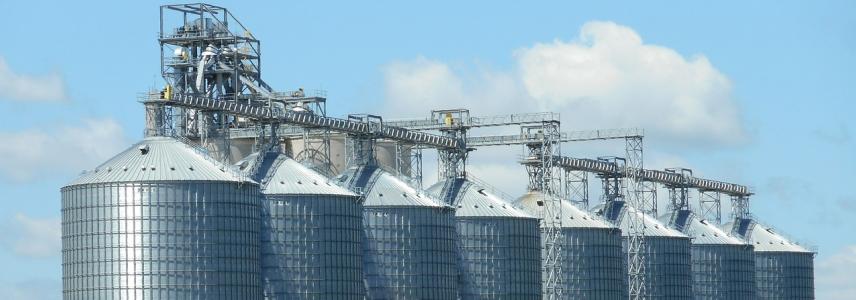How big grains, pulses & oilseeds companies impact sector digitalisation

Agricultural systems can benefit a lot from digital technologies. But it is mostly the larger companies that are going digital. Digitalisation is the way forward, but will everyone be able to keep up? And how will it affect smaller producers and speciality crops.
There is a never-ending need to increase efficiency in agricultural production and the supply of grains, pulses and oilseeds. Throughout the supply chain, it has become obvious that scale and efficiency matter. Agricultural companies are getting bigger, and on-site storage capacity is increasing. Growers are also becoming traders, and supply chains are becoming more direct. Technology is important for this growth and to make these developments possible. Multinational companies are responsible for many of the technological solutions at the production and trading level.
Digitalising global trade
In October 2018, several leading commodity traders decided to work together to digitalise global trade operations. These traders include ADM, Bunge, Cargill, COFCO, Louis Dreyfus and Viterra. They introduced the digital platform Covantis to modernise after-trade processes. The platform uses blockchain technology. This provides:
- a single source of truth;
- end-to-end visibility with real-time tracking of shipments;
- fewer manual errors; and
- shorter waiting times;
which results in lower operational costs and risk. Watch this video for more information on how it works.
Covantis was first used for shipments of soybean and corn from Brazil. Soon, companies will use it in the United States, Canada, Argentina and the Black Sea region. Other commodities such as wheat, sorghum, barley, oils and more will be added. Today, 18 major importers and exporters of agricultural commodities are using the platform. But will smaller suppliers be able to use it easily as well? That is difficult to say. It will require a certain level of digital infrastructure and training.
Digital solutions from producers
On the producing side, large agricultural supply companies also offer digital solutions. Examples include Bayer-Monsanto, Syngenta-ChemChina, DowDuPont and BASF. These companies will likely lead agricultural data in the future. For example, Bayer-Monsanto has already partnered with several technology suppliers to get data from agricultural sensors, drones and satellites. Through their daughter company, The Climate Corporation, they are now introducing Fieldview. This is a digital platform that unites all data in one application. With the data they collect, they can provide recommendations to farmers about their products. They can, for example, advise on seed planting and chemical application. However, using these platforms increases the dependency of farmers on big agricultural companies.
Digitalisation and small suppliers
Digital technologies and efficient data use can improve productiveness and consistency in agriculture. They also make trade more efficient with fewer risks. But, while large companies digitalise their businesses, less well-financed companies risk staying behind. The industry of grains, pulses and oilseeds is very price competitive. For small suppliers to stay ahead of their competitors, it is crucial to look for their own practical solutions.
It is important to stay informed on the innovations of larger stakeholders, as these often lead the way for future development. But, their solutions are not always suitable for small-scale production or speciality crops. Many companies in the niches of the sector will benefit the most from affordable and suitable technologies for the local circumstances and available materials. Read CBI’s tips on going digital in the grains, pulses and oilseed sector for practical examples of farm solutions at different levels.
Stay informed
To stay informed on the latest developments in the grains, pulses and oilseeds sector, subscribe to our newsletter.
ICI Business wrote this news article for CBI.